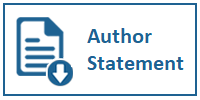Media Komunikasi Dan Dampaknya Bagi Kebudayaan: Analisis Pandangan Herbert Marshall McLuhan
DOI:
https://doi.org/10.31937/ultimacomm.v2i1.403Abstract
According McLuhan, technology in communication has a tremendous impact on human and their culture. Technologies have revolutionary influenced for man to perceive realities in a big scale. New technologies have been demanding new way of human perceiving. The changing of modes of perceiving brings a kind of crisis indentity, and the phenomen of a severe crises of identity appears in the late of the age of 20,th where electronic technology is in their very fast development. McLuhan foresaw a huge technological turbulence is going to happen and he warned people to listen to the message of technology as media. For McLuhan media is the message. His controversial aforism stings us and forced us to reflect the message of media. We are indeed living in the technological turbulence, and it is really happened people living a world with a big technological gap. We thank McLuhan for his warning, and we can discern our life so that we can survive and continue our daily life in a new way. edification is one of the skills needed to continue living together with others, world, and artifacties of Information Technology.
Keywords: penciutan, arus pusar teknologis, autoamputasi, media adalah pesan, media komunikasi, ruang akustik, ruang visual dan ruang dengar-lihat-raba, media panas dan dingin, teknologi sebagai perluasan diri manusia, teknologisasi tuturan dan aksara, kampung global, manusia diskarnasi, pencinta gajet, modus informasi, modus produksi, dan sinestesia.
Downloads
Downloads
Published
How to Cite
Issue
Section
License
Ultimacomm Jurnal Ilmu Komunikasi allows readers to read, download, copy, distribute, print, search, or link to its articles' full texts and allows readers to use them for any other lawful purpose. The journal allows the author(s) to hold the copyright without restrictions. Finally, the journal allows the author(s) to retain publishing rights without restrictions
1. Authors are allowed to archive their submitted article in an open access repository
2. Authors are allowed to archive the final published article in an open access repository with an acknowledgment of its initial publication in this journal














